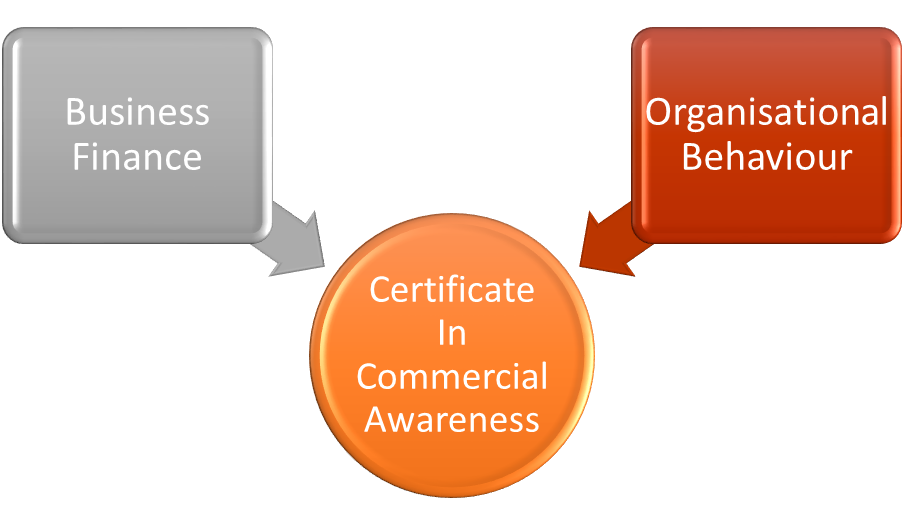Course Content
Part 1 – Business Finance
1.Evaluating a Financial Case
- Purpose of Building a Financial Case
- Techniques used for evaluating a Financial Case
- Payback
- Calculation
- Payback and Risk
- Limitations of Payback
- Discounted Cash Flow /Net Present Value
- Purpose
- Calculation
- The NPV Decision Rule
- Internal Rate of Return
- How to derive IRR
- How IRR is used
- The IRR Decision Rule
- Payback
2.Budgeting, Costing and Pricing
- Budgets and Departmentalised Businesses
- The purpose of budgets
- Reasons for departmentalization
- Cost centres and profit centres
- Cash Flow and Cash Management
- Cash flow forecasting
- Use of cash flow in decision making
- Cash flow and profit
- Costing and Pricing
- Fixed and Variable costs
- Direct and indirect costs
- Break even and Contribution Analysis
3.Financial Reporting and Analysis
- Statement of Financial Position (Balance Sheet)
- Purpose and Structure
- The nature, purpose and types of Capital
- Current and non-current liabilities
- Current and non-current assets
- Income and Expenditure (Income Statement, Profit and Loss Account)
- The importance of Operating Profit
- Revenue (turnover)
- Cost of Sales
- Administrative Expenses
- Profit after Tax
- Statement of Cash Flows (Cash Flow Statement)
- Ratios (formulae and interpretation)
- Profitability Ratios: Operating Margin and Return on Capital Employed ratios
- Liquidity (Cash Management) Ratios: Current and “Acid Test” ratios
- Gearing (Leverage) Ratio: Debt/Equity Ratio
Part 2 – Organisational Behaviour
1.Market analysis and competitive advantage
- Analysing the business domain - Porter’s Five Forces Analysis
- Analysing the portfolio - Boston Box
- Delivering value - Porter’s Value Chain
2.Organisational behaviour and culture
- What is organisational behaviour?
- Organisational effectiveness and the Balanced Scorecard
- Understanding and analysing culture
- Organisational Cultural Types (Deal and Kennedy; Handy)
- International Cultures (Hofstede)
- The Cultural Web
3.Group formation
- Groups and group dynamics
- Formal and informal groups
- Groups and group tasks
- Characteristics of formal groups
- Homan’s theory of group formation
- Tuckman and Jensen’s theory of group development
- Characteristics of informal groups
- Social networks
4.Principles of organisational structure
- Organisation structuring
- Elements of organisation structure
- The six Structure Levels
- The Leavitt Diamond
- Types of jobs
- Work specialisation
- Flat and tall hierarchies
- Span of control
- Line, staff and functional relationships
- Formalisation of rules and procedures
- Centralisation v decentralisation
- Advantages
- Disadvantages
5.Operating models
- Organisation structures and their characteristics
- Functional
- Divisional – product or service/ geography/ customer
- Matrix
- Team-based – cross functional/ project
- Organisational boundaries
- Boundaryless organisations
- Outsourcing
- Offshoring
- Hollow organisation structures
- Modular organisation structures
- Virtual organisations
- Collaborations and strategic alliances

 ENQUIRE
ENQUIRE
 REQUEST CALLBACK
REQUEST CALLBACK
 GET A FREE QUOTE
GET A FREE QUOTE


 Introduction
Introduction Course Details
Course Details Course Content
Course Content






 London
London